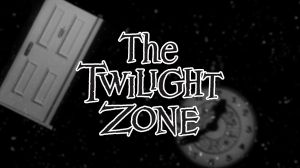X-Men was a game-changing movie for superhero cinema, but the behind-the-scenes experience was something else. A report from The Hollywood Reporter exposes director Bryan Singer‘s bad behavior on the film’s set, ranging from the petty and unprofessional to sexual abuse involving one of the film’s actors. Kevin Feige is best known as the head of Marvel Studios, but 20 years ago, he was an executive working under Lauren Shuler Donner at 20th Century Fox. A longtime Marvel fan, Feige’s attempts to inject the film with more comic book flavor are well-chronicled. But The Hollywood Reporter article suggests he also had the role of babysitter, dispatched by Donner to keep an eye on Singer to make sure his antics didn’t derail the film’s production.
Videos by ComicBook.com
“It’s a weird business, the film business,” Shuler Donner tells The Hollywood Reporter. “We honor creativity and talent and we forgive the brilliant ones. Unconsciously, we probably do enable them by turning a blind eye to whatever they’re doing and taking their product and putting it out to the world.”
But Donner skipped the premiere of X-Men because she’d grown frustrated with Singer’s behavior. “He was very nervous and he would act out when he was insecure, as many people do,” she recalls. “But his way of acting out would be to yell and scream at everybody on the set. Or walk off the set or shut down production. You have to understand, the guy was brilliant, and that was why we all tolerated him and cajoled him. And if he wasn’t so f***** up, he would be a really great director.”
Despite whatever transpired on X-Men’s set, Feige still credits the film with planting the seeds that would grow to become the Marvel Cinematic Universe. “[Producer] Avi [Arad] very much believed in all of these characters, and very much believed in the potential that these characters had to be movies,” Feige said during a podcast interview in 2019. “I think, in years before that – and some of this is based on things I heard when I first started, some of it is based on books that I’ve read about the time at Marvel before I joined. There was a fear that if you mess it up, you would devalue that character. And that’s a fair enough fear because there had been some Marvel characters made into movies that were not shining examples. They didn’t kill the characters, but they were not good. I think you can look back on them now, and they’re “of the time”, and I could make arguments for fun things in them, but they didn’t light the world on fire. Avi very much believed that is what we should do, and it was X-Men as the first that allowed him to keep pushing to do more. And to move out to Los Angeles full time, he was only coming to LA a few days a week at that point, and being based in New York. I got to know him very well during the production of X-Men 1. I sort of became the person on the set, in the production, that he could call and get information from and be kept in the loop. And I was happy to keep him in the loop about things and how they were going. For the most part, they were going well on that movie with that cast.”
He continued, “At the time, we weren’t using the words like ‘cinematic universe’ and things like that. But it was very simple – we knew the movie we were making, for the budget we were making it, which was quite low, certainly low in today’s dollars, even low then. So, there were so many things that we couldn’t do. Which in hindsight was great, because it forced all of us to focus on the characters and to focus on the emotion of the characters and the pathos of the characters, and the inner turmoil of what makes the X-Men great, about all of the analogies to those who are different and those who feel different or are made to feel different, which is all of us. And that’s ultimately what X-Men is about, and that is ultimately why it succeeded. But I remember having discussions – as we always had, and we still do – about ‘Wouldn’t it be cool one day if we got the opportunity to do x, y, or z?’ So I think there were a lot of conversations, a lot of talk about that.”
Following Disney’s acquisition of 20th Century Fox, Feige’s Marvel Studios is now in control of the X-Men’s cinematic future. X-Men will become available to stream on Disney+ on Friday, joining X-Men: Days of Future Past and X-Men: Apocalypse.
Photos by Emma McIntyre/Getty Images for HFA and TPG/Getty Images








